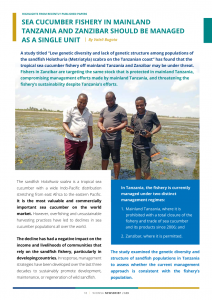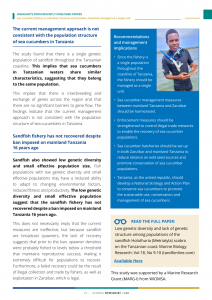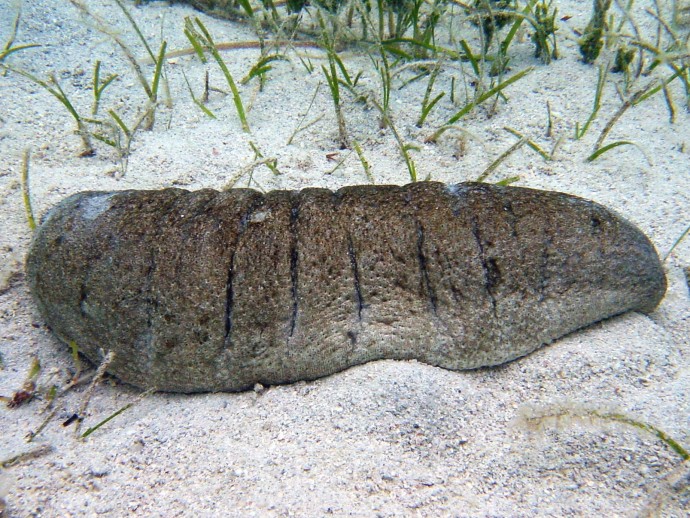One of the most recent work done by Valeli Bugota a Chairperson at Aqua-Farms Organization (AFO) and Dr. Cyrus Rumisha from the Department of Animal, Aquaculture and Range Sciences in the College of Agriculture (SUA), was featured in April Western Indian Ocean Marine Science Association Newsletter. A study titled “Low genetic diversity and lack of genetic structure among populations of the sandfish Holothuria (Metriatyla) scabra on the Tanzanian coast” has found that the tropical sea cucumber fishery off mainland Tanzania and Zanzibar may be under threat of extinction.
Sea cucumbers or Sandfish (Holothuroids) in general play important ecological roles in the ecosystem. One role is remineralising large quantities of organic nutrients through their feeding and burying activities, which increases the benthic productivity of coral reefs. Further, the role of sea cucumbers in the dissolution of CaCO3 sediment provides an important source of alkalinity and may play a role in buffering ocean acidification at least at local scales on coral reefs. With all these potentials, unfortunately, Sea cucumbers have been overfished in many areas for their prized medicinal and culinary properties, leading to a tremendous decline in their population.
Conservation efforts for sea cucumbers can include implementing fishing quotas and regulations to prevent overfishing and creating marine protected areas where sea cucumbers can thrive without human interference. An effort to cultivate sea cucumbers through aquaculture, can reduce the pressure on wild populations and provide an alternative source of this creature. Protecting sea cucumbers is very crucial for maintaining the health of the marine ecosystem.


The Western Indian Ocean Marine Science Association (WIOMSA) is an organization that promotes and supports marine science research and sustainable management of the Western Indian Ocean (WIO) region. WIOMSA was established in 1993 and is headquartered in Zanzibar, Tanzania. This study was supported by a Marine Research Grant (MARG-I) from WIOMSA.
This work was also published in Marine Biology Research.
Bugota, V.J. and Rumisha, C. (2023). Low genetic diversity and lack of genetic structure among populations of the sandfish Holothuria (Metriatyla) scabra on the Tanzanian coast, Marine Biology Research, DOI: 10.1080/17451000.2023.2176883
Get the full “April WIMOSA Newsletter”
Share this page

